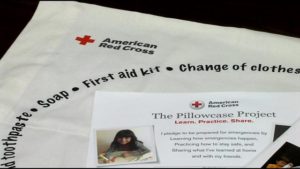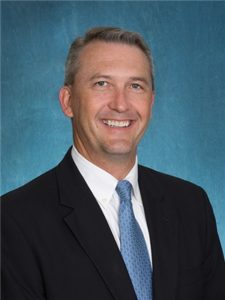by Saddiq Granger
Miscommunication leads to complication-
There come many paths
But you must choose one
and if you don’t choose then the rain soon come
See you might win some but you just lost one. –Ms. Lauryn Hill
I wouldn’t know where to start to make people understand these issues. They are so broad, so old, and yet so new and personal. The story of who I am, not just personally, but globally and throughout all time is not one I could tell in just one sitting.
To be mis-educated is to be done a disservice.
It is not the fault of the student, but it can wreak unknown and often unwanted havoc in a pupil’s life. Just as we receive an education in our learning institutes, we are also daily educated by our environment; our entire being is a result of our environment.
Personally, I was born in the projects of North Philly. When people talk about the ghetto they are speaking of me and the people I grew up with. I mostly went to Muslim school in accordance with my parents’ religion. Both in school and at home I was learning about what it means to be black and what it means to be African. I was taught about the African holocaust; African luminaries and scholars; black writers, artists, and musicians. But, it wasn’t until I went to public school that I had an idea of what it meant to be an American.
I remember sitting in history class, looking at the teacher as if he had sprouted an extra head.
It wasn’t just the shift in content, tone and perspective had also completely shifted. People I knew as heroes were now the bad guys; villains were lauded.
I remember once raising my hand and making a clarifying point about first wave immigrants from Europe and their interactions with the native population. I was immediately placated. It struck me then that perhaps not only was this new education different, but it might also be unwelcome to challenge or change. In this same vein I was learning about Greece and the government systems and their scholars, but not the Egyptians from whom they studied. I was learning about the equality of man and the greatness of our founding fathers, but not the perseverance of my forefathers who also helped to found this country.
Needless to say this new Euroccentric paradigm was completely alien to me. I became painfully aware of the lack of knowledge of African art, history, culture and tradition. I couldn’t find a shred of this information in the students, and not just white students, but also the people who looked like me.
Now, I attempt to combat this miseducation anywhere that I see it. Not because I’m more educated than anyone, but because I am just as miseducated as anyone, and only by talking it through can we see where our paths differ and which is right if any.
It can be frustrating at times. If you feel like you are already in the middle of the book, it is frustrating to have to turn back a few pages to catch people up. But if we are to ever understand each other as a species regardless of race, creed, color, religion or orientation it starts with communication and actively combating our American Mis-education.
 Saddiq Granger is a native Philadelphian, violinist and aspiring community organizer now residing in Waco, Texas.
Saddiq Granger is a native Philadelphian, violinist and aspiring community organizer now residing in Waco, Texas.
The Act Locally Waco blog publishes posts with a connection to these aspirations for Waco. If you are interested in writing for the Act Locally Waco Blog, please email [email protected] for more information.
by Kenneth Moerbe
After reading some articles in editorial section of Sunday’s (9-13-15) Waco Trib, especially the Q&A with the National Resource Network, Jimmy Dorrell’s column about another needed ‘Miracle on the Brazos’, and the editorial, “Long climb, Fiends for Life’s problems underscoring daily necessities of running nonprofits”, all of which I found very helpful, I found myself reflecting on my experiences the day before.
The first was as a participant in a community gathering sponsored by Mission Waco, and led by Jimmy Dorrell, that was an opportunity for the North Waco community to have some input into the future of a building near the corner of 15th and Colcord, which had just been purchased by Mission Waco/Mission World (MWMW) as part of its continuing efforts to revive this once thriving neighborhood in Waco. As a member of the MWMW Board of Directors, I had a particular interest in hearing community members share suggestions about what they would like to see happen with this building. I appreciated so much the number of folks from the community who attended and the enthusiasm with which many of them expressed what their hopes for this building, which Jimmy has referred to as the BUB, ‘ big ugly building’. These hopes included a non-profit grocery store, a restaurant which also trains youth for local jobs, an ethnic, cultural foods and clothing business, a center for family celebrations and events, etc. I hope the MWMW leadership can harness some of that enthusiasm , creativity and energy to turn the BUB into a BB B, a big beautiful building, used to make the area in which its sits into a more life enhancing place to live.
In the afternoon I volunteered with the Community Race Relations Coalition (CRRC), a diverse group of citizens and organizations whose mission is to promote ethnic and cultural awareness and appreciation to strengthen our community. I was present at a community awareness raising event at the East Waco Park, sponsored by the Northeast Riverside Neighborhood Association and the new Horizons Baptist Church. At the event I was helping to maintain the CRRC’s booth, where we tried to engage folks who were there with the question: How many races do you think exist on the earth? The persons who answered that question correctly were rewarded with some candy and a helium filled balloon. Early on we attracted a lot of children who were there. One of the persons to come to the booth while we were setting up and was around the three hours I was there, was a second grader, whom I will call Kiesha, who attended J.H. Hines Elementary. This young African-American child was there with her grandfather and a couple of brothers. She hung around the booth as we talked about all kinds of things. Seems she lived nearby and seemed to be familiar with some of the other folks who were setting up. We talked and I learned first that her mother was in jail, but that her mother was probably going to be released sometime around Christmas time. Without going into the details I learned when I inquired about her father, that he was also in jail, but she didn’t see him much because the jail ‘was much farther away.” She asked me if I had any daughters and a little bit about why I was there, and what we did in the CRRC, and what some of the words printed on a banner on our booth meant. She could read, but some of those words she saw there were ‘big words.” I enjoyed my time with her, appreciated her positive energy, and even with both of her parents were in jail, she seemed remarkably self-confident and actually a very happy child.
Another highlight of my volunteer time at East Waco Park was meeting again someone I had seen and heard speak at more than one community event a few years ago, and that was a Waco PD officer, Stan Mason. When he walked up, I introduced myself, sure that he did not remember me, I told him I remembered him because in his 20 plus years with Waco PD he had always worked the night shift primarily in North and East Waco. He was the personification of what is called ‘community policing.’ I noticed while we talked that a good number of people came to greet him as they arrived at the event. They were young and old, male and female, well attired and not so well dressed, a real mixture of humanity. In most instances they greeted him with a enthusiastic hug. He was obviously well loved by all of these folks. We got into some conversation and he repeated to me his commitment to the vocation to which he really felt God had called him. I remembered from before that he preferred the night shift because it gave him the opportunity to meet a lot of kids on the street in these neighborhoods and he felt if he reached out to them, because he was a cop who cared for them that maybe, just maybe, they would not get into trouble in these late night hours, as is the case with a good number of youth in these neighborhoods. I introduced him to one of my colleagues in our booth who after hearing our conversation asked him if he really believed that Waco PD was totally free of racial profiling. All I can say is that his response was definitely not defensive, but was realistic, and hopeful in terms of the present and future relationship between Waco PD and people of color, young and old.
All in all, I came home that afternoon with a lot of hope after talking with and listening to some of the folks who live in some of our economically poorest neighborhoods. I think that working together, especially as indicated by the strategies of Prosper Waco, that in time we will succeed in making our community a much better place to live for everyone!
 This post was written by Kenneth Moerbe. Kenneth is a Lutheran minister and the former executive director of Caritas. He has participated on just about every committee and task force in town that has anything at all to do with increasing food security or reducing poverty. When he and his wife, Paula, are not gallivanting all over the world on one of their many travels, they are busy serving on various boards, delivering Meals on Wheels and generally being two of the finest and most fun folks in Waco.
This post was written by Kenneth Moerbe. Kenneth is a Lutheran minister and the former executive director of Caritas. He has participated on just about every committee and task force in town that has anything at all to do with increasing food security or reducing poverty. When he and his wife, Paula, are not gallivanting all over the world on one of their many travels, they are busy serving on various boards, delivering Meals on Wheels and generally being two of the finest and most fun folks in Waco.
The Act Locally Waco blog publishes posts with a connection to these aspirations for Waco. If you are interested in writing for the Act Locally Waco Blog, please email [email protected] for more information.
(The Heart of Texas P-20 Council includes representatives from K-12 education, higher education and employers. They meet regularly to help coordinate efforts to launch our young people into productive lives as workers and citizens. This post is one in a monthly series of posts intended to share information about the work of this important group in our community. For more posts in this series, click here: P-20 education.)
By Ashley Canuteson
I have had the privilege of meeting some incredible people through my line of work over the past several years. A key facet of my job as College & Career Readiness Coordinator for Midway ISD is to help make connections between public educators, higher education, and folks in “the real world” – all for the benefit of students. After all, students need to leave us ready for success beyond high school. But students shouldn’t be the only ones who benefit from a group of constituents coming together to share ideas and learn from each other. My experiences have led me to realize that various partnerships coming from all of these efforts are mutualistic – they are not done solely for the benefit of students; rather, they are formed to truly help educate an entire community about how we can all work together for the successful advancement of an economically sound society. Wow! That was a mouthful! So, what does that mean exactly? I can best share an example of the power of mutualistic partnerships by telling the story of a wonderful advocate and community leader.
Rick Tullis, president of Capstone Mechanical and member of the Midway ISD Board of Trustees, was named this summer as one of four state Business Leaders of the Year by the Career & Technology Association of Texas (CTAT). He received this recognition because of a nomination written by Donna McKethan of Waco ISD, Christine Holecek of Education Service Center Region 12, and me. Through our work with each other, we came to realize that we all had seen the power of Mr. Tullis’ influence in a variety of ways. In addition to his commitments to Midway ISD, Mr. Tullis has been an active board member of the Greater Waco Advanced Manufacturing Academy (GWAMA), the Board of Directors for the Waco Business League, the Baylor School of Engineering Board of Advocates, the Baylor Scott & White/Hillcrest Board of Visitors, and the Board of Directors for the Waco Chamber of Commerce. Looking at his level of involvement, one can quickly see that Mr. Tullis is invested in the overall success of the Waco community. It is because of this far-reaching commitment and willingness to serve that he continues to make a lasting impact in the educational realm; however, it doesn’t stop there.
I have had the personal honor of working with Mr. Tullis in some of his volunteer roles – most specifically, with his time on the Steering Committee of the Heart of Texas P-20 Council. What I have realized in that time is that Mr. Tullis brings to the table a vision of shared learning for all. He isn’t there simply as a business representative trying to advise educators on what the world needs in its future workforce, although he shares some great perspective on that topic! He is also there to learn about how he can bring his network of colleagues into the world of education so we can all work together on helping our students become successful. “Preparing students is a shared responsibility of families, schools, and business,” said Tullis in a July interview with Hometown News. And he believes this wholeheartedly.
Mr. Tullis was an integral part of the collaboration between Waco ISD and various other school districts and business leaders who came up with the concept of the Greater Waco Advanced Manufacturing Academy. As GWAMA was coming to life, the educators learned plenty about the need for skilled graduates that exists in our local manufacturing workforce. It is fair to say that our local business leaders also learned much about the world of education. Together, these partners realized there are many ways they can work mutually to meet a variety of goals. Some of those goals benefit the educational institutions and some benefit local business. Even bigger than that, however, are the goals that are long term – the goals that focus on helping students today so that we help strengthen our community tomorrow.
It takes vision. It takes commitment. It takes time. It takes service. It takes a willingness to teach and a willingness to learn. It takes a team of partners focused on how they will contribute to the betterment of our community one relationship at a time. So how can YOU become a partner? How can you make a difference in the life of a student, or the life of a colleague, or the life of your community? We must expand our network of partners through open communication lines and specific opportunities for involvement. Mr. Tullis has challenged us all on the Heart of Texas P-20 Steering Committee to invite new partners to the table for discussions about ways we can all be involved in collaborating mutually on building a successful future. Ideas abound! Job shadowing for high school students, externships for teachers, career day involvement for younger students, college tours… the list goes on and on! Where can you find a fit and become a Partner with a Purpose? Our future needs you!
If you would like to get involved collaborating with the P-20 Council, please contact Fred Hills at McLennan Community College. His email is: [email protected].
 Ashley Canuteson is the Coordinator of College & Career Readiness at Midway ISD. She works with the district Career & Technical Education programs and has a passion for working with people. Ashley is a Waco native who graduated from Robinson High School, attended MCC before graduating from Baylor University, received her Masters degree from Tarleton State University, and is currently working on her Doctorate at Baylor. Ashley is the proud mom to two fabulous children – a future video game designer and a future geologist! She and her husband, Wade, enjoy volunteering together and traveling.
Ashley Canuteson is the Coordinator of College & Career Readiness at Midway ISD. She works with the district Career & Technical Education programs and has a passion for working with people. Ashley is a Waco native who graduated from Robinson High School, attended MCC before graduating from Baylor University, received her Masters degree from Tarleton State University, and is currently working on her Doctorate at Baylor. Ashley is the proud mom to two fabulous children – a future video game designer and a future geologist! She and her husband, Wade, enjoy volunteering together and traveling.
The Act Locally Waco blog publishes posts with a connection to these aspirations for Waco. If you are interested in writing for the Act Locally Waco Blog, please email [email protected] for more information.
by Dr. Cristina Cleveland
“El Cinco de Mayo: An American Tradition,” that’s the title of a book released in 2012 by David E. Hayes-Bautista, (professor of Medicine and founding director of the Center of the Study of Latino Health and Culture at the Geffen School of Medicine at UCLA). When I saw the title I was surprised he had the power to read my mind, and express my thoughts! An American tradition – true statement! I’m sure he explains things much better than I will (as Susana Olague Trapani says in her review David “elegantly and intelligently chronicles the development of the holiday …”), but I will give it a try.
Cinco de Mayo is undoubtedly a big celebration in my dear country Mexico, but in the USA it is sometimes mistaken as a celebration of our Independence from Spain, and that, my friends is celebrated on September 16th.
In late 1861 a well armed 6,000 French soldiers, the premiere army in the world at that time, were trying to get closer to Mexico City and to take control over the government. They forced the President of Mexico, Benito Juarez, to retreat. On their way from Orizaba’s Port to Mexico City they encountered a poorly equipped Mexican Army of 2,000 near the City of Puebla, against all odds Mexico won the battle on May 5th of 1862.
Every year in order to commemorate this battle, they have a big celebration in Puebla City. A representative of The Mexican President, Puebla’s governor and other authorities begin the celebration by presenting respects to the Mexican flag, and singing the National Mexican Anthem. This is followed by a big parade, which this year, 2015, included 8,350 militaries, 144 automobiles, 60 police motorcyclists, 150 horsemen, 6 canoes, 16 commemorative flags and the same amount of banners.
Very impressive, both, the great victory for the Mexican Army over the French Army and the celebration itself, but as great as it sounds, it is far from being our most important national holiday.
Our very big holiday is on September 16th, when Mexico got its Independence from Spain in 1821 after 11 years of war. (We consider it our independence day, even though Spain did not recognize Mexico as a sovereign country until later,1836.)
Now, our big celebration is on September 15th… mmm, wait! It seems there is something wrong here! In the paragraph above I just said September 16th . Well, we begin to celebrate early, you know! We, Mexicans, don’t need any excuse to party! It has been said that General Porfirio Diaz, Mexican President from 1876 to 1911 (yes, 35 years!), begun to celebrate on September 15th because it was his birthday, but other sources say that the celebrations has begun on the night of the 15th since 1840.
 The Celebration is held in the National Palace in Mexico City in front of thousands of people. The President, along with high ranking military officials and ambassadors from other countries approaches the balcony and at 11:00 p.m. on September 15th , rings the Bell of Dolores and cries out loud while holding and waving a Mexican flag:
The Celebration is held in the National Palace in Mexico City in front of thousands of people. The President, along with high ranking military officials and ambassadors from other countries approaches the balcony and at 11:00 p.m. on September 15th , rings the Bell of Dolores and cries out loud while holding and waving a Mexican flag:
“Mexicans! Viva the heroes that gave us a country! Viva Hidalgo! Viva Morelos! Viva Josefa Ortiz de Dominguez! Viva Allende! Viva Aldama y Matamoros! Viva Galeana! Viva Guerrero! Viva Guadalupe Victoria! Viva Francisco Ignacio Madero! Viva Emiliano Zapata! Viva the National Independence! Viva México! Viva México! Viva México!”
After that, you will hear a lot of bells ringing and the fireworks begin. Outside, the crowd is ready to enjoy all kinds of Mexican food from the concession stands, listen to mariachis or tríos, and keep going with the party until early hours in the morning.
If you are not brave enough to face the crowds in downtown (my family’s case), you usually turn the TV on to watch the whole spectacle and then have dinner with your family and friends.
Traditions vary from family to family. In my home, my parents used to dress up as the heroes of the Independence or at least with époque clothes. My sisters and I would probably just wear green, white and red representing the colors of the Mexican flag.
I asked my dear friend Bob, a Wacoan, “ Why do Americans celebrate Cinco de Mayo?” He knew it wasn’t the Mexican Independence Holiday, but he said with a big smile, “Cristina, is just a good excuse to have margaritas.” He made me laugh! He always make me laugh, but it’s true, as David E. Hayes-Bautista mentions in his book, the celebration in America was created by Latinos in California during the mid nineteenth century. Through the years, the meaning of the holiday has changed from “immigrant nostalgia” in the 30’s, to patriotism during World War II, to “Chicano Power” in the 70’s and to mainly commercial intentions in the 80’s and 90’s… I would say that is also the case these days.
I’m touched to think that Americans celebrate a Mexican holiday, so, let’s have a new and better “excuse to have margaritas.” Let’s celebrate together the Mexican Independence on September 16th, the date that marked Mexico as an independent, free and sovereign country.
In Waco, you can celebrate Mexican Independence day from 5:30-7:30 pm on September 16 at the Cen-Tex Hispanic Chamber of Commerce, 915 LaSalle. The Waco Hispanic Museum Committee will be serving cake and drinks. There will also be a history lesson about El Grito de Dolores. Admission is free.
 Also, throughout the rest of September, October and November, 2015, be sure to get out and enjoy “¡Viva Waco!” our Waco celebration of Latin culture. The vibrant sights, sounds and flavors of Latin art, music, and cultural events and activities will be on display in dozens of Waco locations. Besides celebrating Mexican Independence Day (Sep 16th), there will be festivities for Dia De Los Muertos (November 1st) as well as a whole season full of Latin-themed events and exhibitions suitable for the whole family (many of them free of charge) from Waco’s many arts and cultural organizations. To get the details visit the website: www.creativewaco.org/vivawaco/.
Also, throughout the rest of September, October and November, 2015, be sure to get out and enjoy “¡Viva Waco!” our Waco celebration of Latin culture. The vibrant sights, sounds and flavors of Latin art, music, and cultural events and activities will be on display in dozens of Waco locations. Besides celebrating Mexican Independence Day (Sep 16th), there will be festivities for Dia De Los Muertos (November 1st) as well as a whole season full of Latin-themed events and exhibitions suitable for the whole family (many of them free of charge) from Waco’s many arts and cultural organizations. To get the details visit the website: www.creativewaco.org/vivawaco/.
 This Act Locally Waco blog post was written by Dr. Cristina Cleveland. Cristina was born and raised in Mexico City. She’s a Pediatric Neurologist and when she moved to Waco back in 2008, she was planning to be a stay-home-mother of their now 7-years-old-twins. Things changed (as usual) and now, after getting a Master’s Degree in Education, she works for the Foreign Language Department in Waco ISD. In her spare time you can see her driving her twins to the library, karate, soccer, swimming and art classes. If she could just get a “time out,” she would probably be walking, swimming, reading or watching a foreign movie.
This Act Locally Waco blog post was written by Dr. Cristina Cleveland. Cristina was born and raised in Mexico City. She’s a Pediatric Neurologist and when she moved to Waco back in 2008, she was planning to be a stay-home-mother of their now 7-years-old-twins. Things changed (as usual) and now, after getting a Master’s Degree in Education, she works for the Foreign Language Department in Waco ISD. In her spare time you can see her driving her twins to the library, karate, soccer, swimming and art classes. If she could just get a “time out,” she would probably be walking, swimming, reading or watching a foreign movie.
The Act Locally Waco blog publishes posts with a connection to these aspirations for Waco. If you are interested in writing for the Act Locally Waco Blog, please email [email protected] for more information.
By Analí Gatlin and Joel Looper
If you’ve set foot outside or turned on the T.V. recently, you may have noticed that immigration is a hot topic. There’s so much fear and emotion involved that even a total media blackout might not fully isolate you from the pandemonium. Unfortunately, some of the loudest voices don’t have the right information about immigration laws or undocumented immigrants, and that misinformation has often dictated the direction of public conversation. There’s not enough space in this blog entry to correct all the serious misconceptions out there, but we’d like to clear up a few things that have an impact on Waco.
Lately the word “immigration” has covered a multitude of topics: policy debates, questions about the constitutional validity of birthright citizenship, talk of a new construction project (“the wall”), and even thinly veiled racism. That’s part of the confusion. The other part is the labyrinth of laws that affect every aspect of an immigrant’s life. We’ll get to that in a moment. First, a little background.
The 2010 U.S. Census revealed that almost 40 million people living in U.S. are foreign born. Over half of the foreign-born population lives in just four states: California, New York, Florida, and Texas.
Unfortunately, the United States has one of the most complicated systems of immigration law in the world. Depending on an immigrant’s country of origin, it can be virtually impossible for many to immigrate legally to the U.S. And, once an immigrant is here, there’s no “line” to stand in where an undocumented person can just pick up their papers. In the vast majority of situations, a non-U.S. citizen will have no shot at getting a legal immigration status without the help of a qualified immigration attorney or Board of Immigration Appeals (BIA) accredited representative.
This is all the more true in Waco. With a population of around 125,000, Waco is home to thousands of immigrants, undocumented and documented. According to the 2013 American Community Survey (ACS), 10.8% of the total Waco population was not born a U.S. citizen. But even with the thousands of immigrants here in town, we have only one full-time immigration attorney.
The ACS reveals that nationwide 43.7% of the foreign-born population has naturalized; yet this is true of only 25.7% of the foreign born in Waco. The disparity here may be startling to some of us, but with the limited services in our city, it’s easy to see why our community is in this situation.
Though many Wacoans enjoy the occasional weekend trip to Austin or Dallas, that’s just not feasible for many immigrants in our community seeking legal counsel. Seeing an attorney in these cities would mean not only paying the travel expenses but also frequently missing work. Practically, this means that many immigrants in Waco, especially low-income immigrants, aren’t receiving the legal services they need to gain an immigration status in the United States and eventually become citizens.
Why should this matter to Wacoans, both immigrants and U.S. born? Those without a firm legal immigration status often become part of a shadow population, folks without actual or perceived access to many of Waco’s public resources. It helps no one to have a significant number of Wacoans living in constant fear of deportation, feeling as if they can’t fully participate in society or contribute fully to our community.
If that weren’t enough, shadow populations often become targets for criminal activity, and that’s no different in our city. Undocumented immigrants who are victims of a crime may be less likely to contact police out of a fear that they will be deported because their immigration status is discovered.
A prime example is the practice of notario fraud. Notarios are people who practice immigration law who actually aren’t licensed to practice law at all. What might be confusing to many immigrants is that notarios are often qualified to practice law in Mexico and Central America, but only licensed attorneys and BIA accredited representatives are authorized to practice immigration law in the United States. Frequently notarios take advantage of low-income immigrants and give faulty and unauthorized legal advice that can further jeopardize an immigrant’s legal standing. When there’s a lack of qualified immigration legal services, notarios often fill the void, and they continue to practice with impunity because undocumented immigrants often fear contacting police after they have been defrauded. Waco isn’t immune to notario fraud, and hundreds of Wacoans have fallen victim to these predators. Fraud on such a large scale weakens our entire community.
Thankfully, immigrants in our community do have a couple places they can turn. Baylor Immigration Clinic at the Law School is one such resource. Law students volunteer their services to help area youth complete the Deferred Action for Childhood Arrivals (DACA) applications. Waco is also fortunate to have Susan Nelson, an experienced immigration attorney, and Mission Waco Legal Services, which assists low-income folks with a variety of legal needs including immigration services.
But even with these resources, Waco and McLennan County still have a lot of work to do. This year alone many Waco immigrants will be separated from their families and friends and even deported into life-threatening situations because of the lack of legal resources in Waco. As a city, let’s work together to welcome some of our most vulnerable neighbors with compassion, legal and social resources, and, yes, Waco hospitality.
 Analí Gatlin is a Waco native who is currently practicing immigration law at a nonprofit organization in Austin, TX. She loves Waco and naturally spends her weekends at home here. Joel Looper, originally from Michigan, has made his home in Waco and teaches religion and Language Arts at Live Oak Classical School. Joel and Analí are also busy planning their upcoming wedding.
Analí Gatlin is a Waco native who is currently practicing immigration law at a nonprofit organization in Austin, TX. She loves Waco and naturally spends her weekends at home here. Joel Looper, originally from Michigan, has made his home in Waco and teaches religion and Language Arts at Live Oak Classical School. Joel and Analí are also busy planning their upcoming wedding.
The Act Locally Waco blog publishes posts with a connection to these aspirations for Waco. If you are interested in writing for the Act Locally Waco Blog, please email [email protected] for more information.
By Chris McGowan
A little over 8 years ago I told my boss in Houston that I was moving to Waco. His first question was, “Why?” What I told him was not dissimilar to how he responded to a mentor years ago when he told him he was moving from LA to Houston, “an opportunity to do something amazing.”
Without knowing much about Waco but studying it from an economic developer and community builder’s eye several things were readily apparent to me about why I wanted to be here. First, latent demand. Texas has been growing at an amazing clip for the past two decades, and Waco hadn’t kept pace with its peer cities in terms of growth rate. It was bound to explode at some point and an opportunity to be a small part of impacting a community as it transforms itself would be very interesting.
Second, looking at the downtown area, literally looking at maps and aerial photographs, the opportunity for revitalization was readily apparent in the amount of vacant land available. The Tornado is often talked about as a turning point in this community. I don’t believe that, but it didn’t help. We abandoned our core just like every other city in America; it’s just that after the tornado we had less to abandon. In the real estate development world open land is gold, open land that is already served by utilities is double gold. There aren’t a lot of cities in the United States with the possibility of growth that Waco has. Add that to the amount of available land in the core, and that was exciting.
Third, there were probably no other cities in America eight years ago that had that possibility for growth, and a relatively pristine, real river  running right through the middle of its heart. Looking back, this unique combination of natural resources, opportunity and demographic trends are what’s positioning our community to achieve great things. I’d wager that, just like me, if it weren’t for the river, directly or indirectly, many of you wouldn’t be here either.
running right through the middle of its heart. Looking back, this unique combination of natural resources, opportunity and demographic trends are what’s positioning our community to achieve great things. I’d wager that, just like me, if it weren’t for the river, directly or indirectly, many of you wouldn’t be here either.
Celebrate the river, take advantage of what it has to offer our community, be excited for what it means and where it will take us.
Thanks you for all that you do to make Waco great.
 This Act Locally Waco blog post is written by Chris McGowan. Chris is the Director of Urban Development at the Greater Waco Chamber of Commerce. At the Chamber, Chris has been responsible for working with the business community, the public sector and other stakeholders to help revitalize our urban core and strengthen the heart of our city. He is the primary organizer of “1000 friends of Waco.” The goal of 1000 Friends of Waco is to prepare residents to be advocates for a vibrant, successful Greater Downtown Waco. Check it out at 1000friendsofwaco.com or follow them on Facebook and Twitter @1000friendswaco. Chris is husband of Cristi, dad of Ollie, and for fun he is a charcutier. If you know what that word means, you are probably eating way too much bacon!
This Act Locally Waco blog post is written by Chris McGowan. Chris is the Director of Urban Development at the Greater Waco Chamber of Commerce. At the Chamber, Chris has been responsible for working with the business community, the public sector and other stakeholders to help revitalize our urban core and strengthen the heart of our city. He is the primary organizer of “1000 friends of Waco.” The goal of 1000 Friends of Waco is to prepare residents to be advocates for a vibrant, successful Greater Downtown Waco. Check it out at 1000friendsofwaco.com or follow them on Facebook and Twitter @1000friendswaco. Chris is husband of Cristi, dad of Ollie, and for fun he is a charcutier. If you know what that word means, you are probably eating way too much bacon!
The Act Locally Waco blog publishes posts with a connection to these aspirations for Waco. If you are interested in writing for the Act Locally Waco Blog, please email [email protected] for more information.
by Jenuine Poetess
Every year, on the last weekend of September, artists across every genre and medium gather in an expression of creativity the likes of which is rarely beheld in one time and place. 2015 marks the 11th Annual Waco Cultural Arts Festival (WCAF) which encompasses six, yes six, complete festivals in one: MusicFest, {254}DanceFest, WordFest, ScienceFest, Celebration Africa FilmFest, and the original ArtsFest — a juried visual arts compendium of high caliber artists from across Texas and beyond!
Each year, the WCAF adds new and exciting featured artists, interactive opportunities, and thrilling installations to the veritable feast of the senses that is each festival. Here I’ll note some of this year’s highlights in the hopes that Waco, McLennan County, and Central Texas will take advantage of this free public festival welcoming all ages to imagine, inspire, and create together!
MusicFest
 The 2015 WCAF MusicFest will feature both locally loved and nationally known musicians on the mainstage Friday, Saturday, and Sunday! Local favorites include, Never Native, The Union Revival, Venus Envy, and MOJO Assassins. Central Texas String Academy and Choral Society will take to the stage Saturday and Sunday. Saturday evening showcases appearances by Joel Laviolette and Rattletree Marimba, Encore!, and Tequila Rock Revolution and Sunday closes out the festival with headliner, Joel McCray Jazz Group. What a diverse musical menu!
The 2015 WCAF MusicFest will feature both locally loved and nationally known musicians on the mainstage Friday, Saturday, and Sunday! Local favorites include, Never Native, The Union Revival, Venus Envy, and MOJO Assassins. Central Texas String Academy and Choral Society will take to the stage Saturday and Sunday. Saturday evening showcases appearances by Joel Laviolette and Rattletree Marimba, Encore!, and Tequila Rock Revolution and Sunday closes out the festival with headliner, Joel McCray Jazz Group. What a diverse musical menu!
{254}DanceFest
 Each year the Out on a Limb Dance Company selects outstanding, unique, and “off the grid” dancers from across the country to perform on Waco’s stage. One favorite feature is the {254} Choreography Dance Exchange, a program connecting dancers and choreographers from around Texas and Oklahoma. {254}DanceFest includes free performances, lecture/workshops, dance jams, and classes (for only $5).
Each year the Out on a Limb Dance Company selects outstanding, unique, and “off the grid” dancers from across the country to perform on Waco’s stage. One favorite feature is the {254} Choreography Dance Exchange, a program connecting dancers and choreographers from around Texas and Oklahoma. {254}DanceFest includes free performances, lecture/workshops, dance jams, and classes (for only $5).
WordFest
 For the first time ever, WordFest will feature a Texas Commission on the Arts poet, Sarah Cortez. Hailing from Houston, TX this police-officer-turned-poet will present workshops for children and adults alike and will feature a solo reading followed by a Q & A. Other highlights of this year’s event include a 2015 WordFest Anthology reading to kick off the weekend Friday evening, 100Thousand Artists for Change Open Mic on Saturday evening, and a special Her Texas reading and Q & A on Sunday Afternoon. With workshops, panel discussions, Ink Café, community open mics, and local authors selling and signing their works, WordFest is sure to offer something for writers of every age and every genre from poetry to fiction to memoir to post-apocalyptic mayhem!
For the first time ever, WordFest will feature a Texas Commission on the Arts poet, Sarah Cortez. Hailing from Houston, TX this police-officer-turned-poet will present workshops for children and adults alike and will feature a solo reading followed by a Q & A. Other highlights of this year’s event include a 2015 WordFest Anthology reading to kick off the weekend Friday evening, 100Thousand Artists for Change Open Mic on Saturday evening, and a special Her Texas reading and Q & A on Sunday Afternoon. With workshops, panel discussions, Ink Café, community open mics, and local authors selling and signing their works, WordFest is sure to offer something for writers of every age and every genre from poetry to fiction to memoir to post-apocalyptic mayhem!
ScienceFest
 A recent addition to the WCAF line-up, ScienceFest seeks to reinforce the wisdom that placing STEAM (Science, Technology, Engineering, Arts, and Math) at the core of learning, cultivates critically and creatively thinking students ready to address the concerns of our community, our environment, and our world! This year’s theme is Robots, Rockets, Critters, & Chemistry and the ScienceFest featured Artist is Steve Veracruz presenting an exhibit on Fibonacci.
A recent addition to the WCAF line-up, ScienceFest seeks to reinforce the wisdom that placing STEAM (Science, Technology, Engineering, Arts, and Math) at the core of learning, cultivates critically and creatively thinking students ready to address the concerns of our community, our environment, and our world! This year’s theme is Robots, Rockets, Critters, & Chemistry and the ScienceFest featured Artist is Steve Veracruz presenting an exhibit on Fibonacci.
Celebration Africa FilmFest
 “Designed to showcase the beauty, diversity, and majesty of Africa,” the Celebration Africa FilmFest provides festival attendees the opportunity to not only screen important films, but to engage in community dialogue and conversation around the various issues, concerns, and celebrations portrayed in each film. Together with a number of community organizations FilmFest presents a rich experience of African culture through film and discussion. Friday’s opening reception will be followed by a screening of The First Grader. Among Saturday’s screenings will include, The Forgotten Kingdom.
“Designed to showcase the beauty, diversity, and majesty of Africa,” the Celebration Africa FilmFest provides festival attendees the opportunity to not only screen important films, but to engage in community dialogue and conversation around the various issues, concerns, and celebrations portrayed in each film. Together with a number of community organizations FilmFest presents a rich experience of African culture through film and discussion. Friday’s opening reception will be followed by a screening of The First Grader. Among Saturday’s screenings will include, The Forgotten Kingdom.
ArtFest
 Among the juried artists who have been carefully selected to exhibit and sell their work throughout the three days of WCAF, there will be a number of artists doing live, interactive, demonstrations of their work. Additionally, there will be a variety of booths where artists of all ages can create a project souvenir to bring home with them. Many surprises and visual delights are in store at the 2015 Waco Cultural Arts Fest.
Among the juried artists who have been carefully selected to exhibit and sell their work throughout the three days of WCAF, there will be a number of artists doing live, interactive, demonstrations of their work. Additionally, there will be a variety of booths where artists of all ages can create a project souvenir to bring home with them. Many surprises and visual delights are in store at the 2015 Waco Cultural Arts Fest.
Details:
When: September 25-27, 2015
Time: Friday 5p – midnight; Saturday 10am-midnight; Sunday 11a-5p
Where: Indian Spring Park & Waco Convention Center
Who: Everyone, all ages
Cost: FREE! (all events, unless noted are FREE. Food and artwork are additional fees per vendor.)
Website: www.wacoartsfest.org
 Jenuine Poetess is an artist, visionary, and community organizer. In 2010, she founded In the Words of Womyn (ITWOW), an international, grass-roots, written and spoken-word arts project with chapters throughout Los Angeles, CA; Waco, TX; and Lebanon. Jenuine is the founder of Waco Poets Society and co-founder of the Central Texas Artist Collective. She writes, organizes, and creates rooted in the fierce conviction that holding intentional space, access, and opportunity for all people to foster their creative health is a matter of justice and is a vital asset to the sustainable thriving of communities. She currently lives and poems in Central Texas where she enjoys finding new ways to disrupt the homeostasis of her city. You can contact her at: j[email protected].
Jenuine Poetess is an artist, visionary, and community organizer. In 2010, she founded In the Words of Womyn (ITWOW), an international, grass-roots, written and spoken-word arts project with chapters throughout Los Angeles, CA; Waco, TX; and Lebanon. Jenuine is the founder of Waco Poets Society and co-founder of the Central Texas Artist Collective. She writes, organizes, and creates rooted in the fierce conviction that holding intentional space, access, and opportunity for all people to foster their creative health is a matter of justice and is a vital asset to the sustainable thriving of communities. She currently lives and poems in Central Texas where she enjoys finding new ways to disrupt the homeostasis of her city. You can contact her at: j[email protected].
The Act Locally Waco blog publishes posts with a connection to these aspirations for Waco. If you are interested in writing for the Act Locally Waco Blog, please email [email protected] for more information.
By Amy Grace
It was Friday a few weeks ago, and I was stuck in traffic. The highway was a parking lot, and I was trying not to pull my hair out in frustration. As fate would have it, there was another person stuck in the same traffic, a mom whose path would cross with mine a few days later. While I was fidgeting and fuming over the traffic delay, she was receiving a phone call in her car that her home was on fire with her children in it. Really puts things in perspective, doesn’t it?
This mom contacted the Red Cross for help after losing many of their family’s possessions, and I was sent to assess the damage to the home and to determine what immediate needs we might help meet.
Upon arriving at the townhouse, I noticed the upstairs windows were broken out and black with smoke residue, but, for the most part, the home didn’t look that damaged. Then I walked into the house and changed my mind. As I headed up the stairs, my stomach twisted in knots seeing paint scorched, wood warped and everything just blacker and blacker as I got closer to the source of the fire…the bedroom of a little five-year old boy. There was nothing left in that room. Every toy, the bed, clothes – everything, in every corner was turned to ash or to melted versions of what it had been. The little boy’s mom was standing right behind me. I turned to her and asked, “How did he make it out of here?” With tears in her eyes, she pointed to the smoke alarm. It had notified the other adults in the home when the fire started, and they had been able to get everyone out to safety. Without that early warning, the outcome for this mom might have been very different. The call she received in her car might have been much more devastating.
A few months ago I accepted the position of Executive Director for the Heart of Texas Chapter of Red Cross. Like most people, I was familiar with Red Cross, but I quickly found out that what I knew about the Red Cross was not anywhere near the whole story.
Most people know that Red Cross responds when disaster strikes. Yes, our definition of “disaster” includes catastrophic events that affect masses of people, but we also recognize and assist in much smaller disasters, events that most of us will never hear about but that can rock a person, or a family, to the core. We respond to home and apartment fires like the one described above every day. We provide comfort and meet immediate needs for food, shelter and clothing for hundreds of families a year. I had no idea.
In addition to responding to fires, the Red Cross also works hard to prevent fires from taking a devastating toll. For example, we have a program to install smoke alarms in any home that needs them – for free. We are also equipping our community’s children to understand and be prepared for disasters like home fires, tornadoes and flooding. Through a joint effort with Disney called “The Pillowcase Project,” we are targeting 3rd through 5th graders in a fun, hands on session ab out disaster preparedness and safety. We are partnering with the YMCA of Waco to deliver this to students in their after-school programs this fall.
out disaster preparedness and safety. We are partnering with the YMCA of Waco to deliver this to students in their after-school programs this fall.
I wish to never again see the gut-punched, empty-eyed look on another adult or child’s face after they have lost everything, sometimes including loved ones, to a fire. The Red Cross is working hard to make that wish a reality.
The Red Cross also makes sure that firefighters battling wildfires get water and food, that patients needing blood transfusions have access to that life giving resource, that our military service members receive vital help and support when they need it, and that care givers for your children are trained to save those precious little lives. Before I came to work here, I had no idea the Red Cross did all these things, and I bet some of you didn’t know it either.
The Red Cross mission is lived out in our community, right here in Waco, every day of the week, by a handful of incredible volunteers and a few staff members who get up at all hours of the night to make sure every home fire victim we are called upon to help, gets that help. That is who we are here at the Red Cross.
My team members and I work tirelessly to make sure you, our neighbors, get the help you need when you need it… and we need your help! The people driving with you on the road, sitting with you in restaurants, walking around the mall or grocery store with you… they need your help. We never know when disaster will strike or where. How can you help? Become a Red Cross volunteer here in our community and help people be prepared for and cope with disasters in our own back yard. Or, give to our mission financially to help protect and support more and more families. Whatever route you choose to help, thank you in advance – you are extremely appreciated.
If you have questions or want to learn more, you can call our office at (254) 523-4985, call me directly at (254) 447-1625, or visit us online at www.redcross.org to explore volunteer and donation opportunities, and to learn more about our Home Fire Preparedness Campaign and Pillowcase Project.
Thank you for reading!
 Amy Grace is a native Texan serving our community as the Executive Director of the Heart of Texas chapter of the American Red Cross. She has an extensive professional background but is most proud of being a mom to her incredible four-year old daughter and paying forward a legacy of courage, resilience, hope and abundance. She currently resides in Temple with her daughter, two canine family members (Ranger and Silver) and her grandmother.
Amy Grace is a native Texan serving our community as the Executive Director of the Heart of Texas chapter of the American Red Cross. She has an extensive professional background but is most proud of being a mom to her incredible four-year old daughter and paying forward a legacy of courage, resilience, hope and abundance. She currently resides in Temple with her daughter, two canine family members (Ranger and Silver) and her grandmother.
The Act Locally Waco blog publishes posts with a connection to these aspirations for Waco. If you are interested in writing for the Act Locally Waco Blog, please email [email protected] for more information.
By Eric Martin
I love living in downtown Waco. We’ve got a gorgeous river, a sprawling urban park, a charming business district, a friendly and diverse community, and world-class higher education.
As I travel through Texas and around the world, my fondness for the city has made me a bit defensive about it. Defensive because of the nearly ubiquitous reactions that mention of “Waco” elicits from others. Waco, as you likely know, has a worldwide reputation. In many folks’ minds, Waco is not just where the Branch Davidian siege and biker-gang-shootouts happened to take place. Unfortunately and unfairly, for many, Waco represents the kind of place where those sorts of things occur: backward, gun-crazy, with more than its share of religious fanatics.
Such interactions have sensitized me to widespread misconceptions about the South. As a native Midwesterner, I’m surprised to find myself in a position to convince friends and colleagues that their stereotypes are often untrue and unfounded.
That said, Waco has its struggles like any other city. And these challenges have been especially pronounced during the last half of the 20th century; we are now emerging from that period but those challenges still affect us today. For example, the lack of grocery stores means that on most days it’s impossible to buy fresh food for many miles around downtown. It’s an inconvenience for me, but a conspicuous public health problem for the city. Also, its infrastructure needs updating to make the city more accommodating for pedestrians, cyclists, and public transit users. Study after study shows that such urban development really matters: sidewalks, trees, and bike lanes are not only economically beneficial but actually make people happier and healthier.
These problems are intertwined with another, bigger one: lack of confidence in Waco schools.
As this website has highlighted, there are plenty of good-news stories emerging from Waco ISD, but I want to address the perception of problems just as much as any actual problems. Perceptions – even if they’re illusions – matter, since they have kept many more-resourced families away from downtown Waco.
Historically, downtown was hardly a place to avoid. Many Wacoans remember when downtown was a thriving business district that attracted people from all over. Downtown boasted theaters, stores, hotels, and streetcars: precisely the amenities world-class cities feature today. Its streets were packed with people. U.S. Presidents came to town; renowned theologian Dietrich Bonhoeffer even stopped here on a 1931 road trip.
In the 1990s, by contrast, Waco was known among Texans more as a bathroom stop along I-35; it was christened “Tinkletown” by one Baylor professor. One newspaper dubbed the Waco of this era “a shabby ghost town.”
I’ve asked a lot of questions about what exactly happened to this formerly thriving downtown, and there is one explanation that nearly everyone brings up: the 1953 tornado. Many Wacoans say that our formerly great city was blighted by this Act of God, and that downtown has simply never recovered from this natural disaster.
But that’s just one part of the story, and I’ve come to think that Waco’s decline is not nearly so much an act of God as many smaller acts of human sin. An F5 tornado, horrible as it was, is no match for the urban destruction wrought by human prejudice.
Coinciding with the tornado was the momentous Supreme Court decision, Brown vs. Board of Education, officially desegregating American schools. Desegregation was slow and piecemeal in Waco, but over the few years it was implemented, Waco ISD saw an exodus of over 5,000 students leave for surrounding suburbs[1]. It is clear that some people moved away from downtown Waco to move away from integrating with minority communities. Moreover, it is clear that many people today also choose their school districts in ways that effectively reinforce segregation, which harms students (not just poorer ones) in lots of ways.
This is not just a Waco problem: it’s an American problem, especially severe in the post-World War era of “white flight.” The combination of exclusive neighborhood covenants and the redlining procedures used by banks to segregate neighborhoods made for new ways of preserving old divisions. And because of America’s peculiar method of financing education through local property taxes, this system generates not only ethnic division, but less education funding for poorer families. America is one of the only developed nations that spends more public money on rich children than on poor children [2].
Segregation in American schools never really ended; it only changed forms by becoming privatized. Instead of segregated schools, we now have segregated neighborhoods. It’s not just about race, or even class: it’s about not wanting to live with people different from ourselves, coupled with legitimate (if muddled) fears of providing children with anything less than the best educations. This is certainly part of the explanation for Waco’s downtown decline.
The concentration of wealth and educational opportunity in segregated communities of privilege are understandable social phenomena. But these realities do not reflect especially loving or Christian values. To the contrary, I believe they are trends that Christians should be working to change.
Problems with race relations haunt America’s past, but we risk recapitulating these sins unless we identify them and address them head on. There are glaring disparities in class and ethnicity within steps of Baylor’s campus. The good news is that Baylor can help remedy these divisions. I single out Baylor because it’s the institution I’m currently part of, but I also believe it has the resources and the vision to make a real impact.
How can Baylor be a better neighbor in our community? One answer is simply to be a neighbor in our community – that is, to suggest that its employees might live here instead of elsewhere. When faculty and staff move to Waco to join Baylor, the university has often shepherded them off to distant suburbs. But Baylor should also promote downtown as a great place to live. Several new faculty members have recently made the decision to live centrally and I think even more will in the future.
Secondly, Baylor can provide volunteer experiences that are more than just passing events. Service opportunities should foster richer, more long-term interactions between students and the rest of the city, and help with problems identified by community members themselves. I have been impressed with the ways that Baylor pursues these goals, especially though its Office of Community Engagement and Service. Volunteering should be integral to the undergraduate experience.
And third, Baylor can actively promote diversity among our students, teachers and staff. We should strive to reflect the diversity of Texas and our nation, and be part of the best tradition of universities that become engines of social mobility. I would argue that Baylor, which was itself segregated for 70% of its own institutional history, has an added obligation to ameliorate the ongoing disparities along ethnic lines.
I love living in Waco, and want it to be a place where everyone has the opportunity to flourish. We can all work on being better neighbors.
 Eric Martin is a philosopher working at Baylor University’s Great Texts Program. Originally from Michigan, he studied in Colorado and California before taking his first academic position in London. After a few years overseas, he’s now happy to call Waco home. When he’s not at his desk he can be found exploring Cameron Park or riding his bicycle.
Eric Martin is a philosopher working at Baylor University’s Great Texts Program. Originally from Michigan, he studied in Colorado and California before taking his first academic position in London. After a few years overseas, he’s now happy to call Waco home. When he’s not at his desk he can be found exploring Cameron Park or riding his bicycle.
The Act Locally Waco blog publishes posts with a connection to these aspirations for Waco. If you are interested in writing for the Act Locally Waco Blog, please email [email protected] for more
Notes:
[1] Texas Education Agency Research Division, Public School Directory 1954-55 – 1984-85. These numbers are corroborated by anecdotal accounts of the city’s reaction to integration by residents and school officials. See also BU’s Institute of Oral History records: esp. Glenn R. Capp, Sr. (1976); Samuel K. Howard (1994); Pauline Adams (2002). Advocating desegregation in 1955 earned Capp personal threats and accusations of being a “communist” by the local White Citizens’ Council. Enthusiasm for integration was tempered by sometimes-tumultuous court-ordered school reorganizations, such as 1970’s consolidation of La Vega and Waco schools. Recent discussions of modern segregation include ProPublica’s Segregation Now and This American Life’s The Problem We All Live With.
[2] Organization for Economic Cooperation and Development, Education at a Glance 2013.
By Sarah Frances Moran
I’ve written poetry since I was a teenager and since that time was very good at keeping it nice and hidden in my journals. It made the occasional appearance with girlfriends (girls love, love poems!) and the occasional appearance with family. Otherwise, it was never shared. Never. The thought of sharing my work publicly, whether at open mics or by submitting it to journals was horrifying.
I moved to Waco in July of 2013 and decided in the summer of 2014 that I needed to look into whether Waco offered any open mic type events so I could continue sitting in the corner hiding my work! That’s when I came across Waco Word Fest (a part of the Waco Cultural Arts Fest). I’d missed the majority of the event but did manage to make it to the 100thousand Poets for Change reading and that’s where I met Jenuine Poetess, local advocate for all things art. The event was organized and encompassed this wide variety of beautiful voices. She engaged the crowd, took photos and was extremely encouraging and welcoming. I was impressed. At the event flyers were passed out about other events. It was here that I learned about the Waco Poet’s Society and the In The Words of Womyn writing group.
My journey to finding an open mic venue brought me to meeting with Jenuine and a beautiful group of women writers on Monday evenings. I began sharing my work and my voice. Shortly after, I attended a Nuestra Voz open mic hosted by Jenuine and Waco Poet’s Society. For the first time in my life I got the courage to get up in front of an audience of strangers and read my most personal work. I decided that I should start sending my own work out to be considered for publication in journals and magazines. In one year’s time I’ve had a ton of work published in a wide variety of journals, magazines and online blogs. I’ve begun to dabble in short stories, non-fiction and memoir writing. I’ve continued to read my work in front of audiences even when my voice quivers. I’ve been featured in Houston, and Austin, and in September I’ll be featured here in Waco. I’ve started my own journal, Yellow Chair Review, that is quickly growing beyond my wildest imaginations. This year at the 2015 Waco Word Fest I’ll be giving a workshop on publishing.
But this isn’t about me, this is simply why community is so so important. This is why holding space that is encouraging, comforting and open means so much.
I know my accomplishments are mine but they’re also Waco’s. This is where my voice was found and this is where it’s nurtured. This is where I’ve learned that my voice is important, that what I create is important and that I have nothing to fear by sharing it.
Imagine all of the Sarahs out there writing in journals, singing in the bathtub, painting in their bedrooms who are afraid. Imagine them never finding safe space. Imagine all of the creativity that never gets shared with the world.
Support the arts. Support the individuals like Jenuine volunteering their time to hold space to uplift voices.
These programs have nurtured and continue to nurture me an an artist. They are important and none of it is in vain. I’m proof of that.
 This Act Locally Waco blog post was written by Sarah Frances Moran. Sarah is the editor and founder of Yellow Chair Reviewand a member of the Waco Poet’s Society. To read more of her words please visit www.sarahfrancesmoran.com .
This Act Locally Waco blog post was written by Sarah Frances Moran. Sarah is the editor and founder of Yellow Chair Reviewand a member of the Waco Poet’s Society. To read more of her words please visit www.sarahfrancesmoran.com .
The Act Locally Waco blog publishes posts with a connection to these aspirations for Waco. If you are interested in writing for the Act Locally Waco Blog, please email [email protected] for more information.

